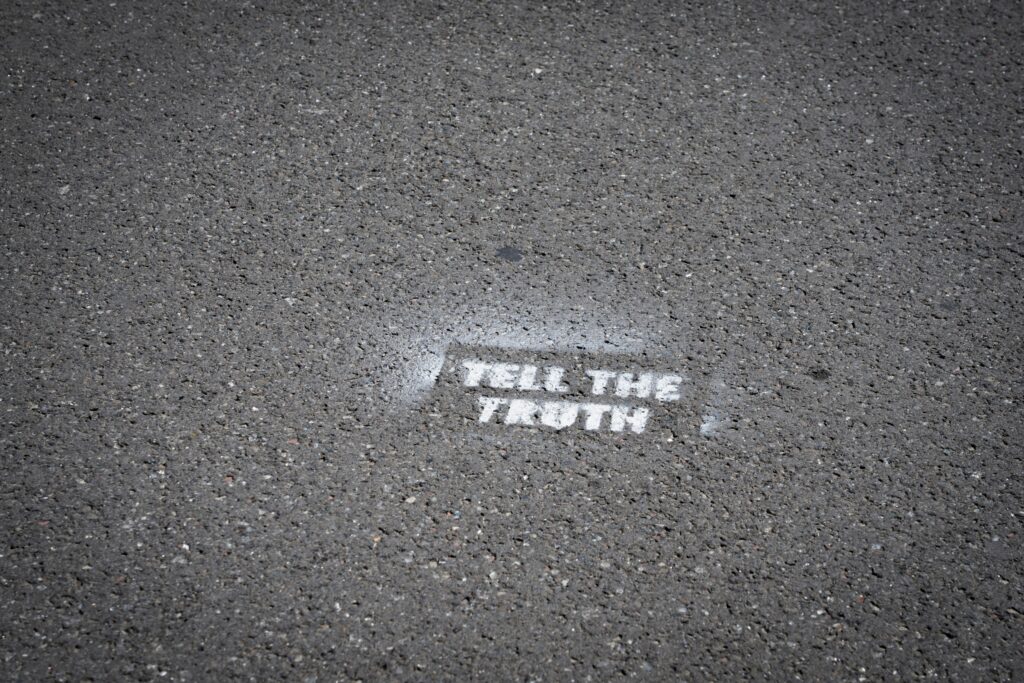In the previous blog posts I had been suggesting that despite the legitimate room for disagreement amongst Christians on a number of topics, that there was a core number of essential teachings that need to be embraced if we seek to be faithful followers of Jesus. This ‘essential core’ is what has historically been labelled ‘Christian orthodoxy’. But, just as an important reminder at this point, this is much more than simply about what we believe (although that is key), it is also about how we live and what we worship. Therefore, my suggested definition of orthodoxy was ‘the rightful re-aligning of our thoughts and lives with the truth of God as an act of worship’
‘Orthodoxy is the rightful re-aligning of our thoughts and lives with the truth of God as an act of worship’

In this post I want to tentatively explore the shadow side of orthodoxy by unpacking what we might mean when we talk about heresy. Now, to talk about heresy in this day and age, is not easily done and one scholar called it ‘the most ugly issue in theology today’.1 But why do have such an aversion to it? Well, here are some suggested reasons:
- Firstly, we live in an age of profound mistrust in institutional authority and tradition. There may be good and bad reasons for this reality but it has meant that our trust in recognised authority has shifted from the vertical realm (institutions) to the horizontal (our friends and family).2
- Secondly, and related to the first point, is the the fragmentation of communities that, historically, have stewarded these boundaries which has resulted in a corresponding shift of the locus of truth from something ‘outside’ and ‘external’ to us to something ‘internal’. We now turn in on ourselves to discover our authentic selves.
- Thirdly, we live at a time when true has become closely aligned with power and so a truth claim almost becomes synonymous with an oppressive power-grab. Therefore, to avoid being viewed a bigoted perpetrator of oppression we lower our convictions and instead of speaking about the truth, we speak instead of my truth or your truth.
- Fourthly, and finally, we live in an age of almost limitless exposure to the complexity, mystery, and often beauty of other cultures, which humbles us and causes us to question why we might be right and so many others wrong.
These are legitimate and complicated concerns and the Church has not always handled dissent and difference well (withc hunts and inquistions anyone) but we must not allow them to paralyse our faith and stop us from leaning into the depths of God. Martin Luther King said that our lives begin to diminsh the day we stop talking about things that matter and the topics we are discussing here could not be more important. We are wrestling with he very nature of reality, about what is true of God, of ourselves, the world we live in, and the eternal state of our souls.
For some they might want to argue that we should only focus on what we believe rather than what we don’t believe, to affirm what we are for rather than what we are against, but this is more rhetoric than substance. Thomas Oden, for instance, is surely correct that every affirmation requires a corresponding negation, or to put it another way, every time we claim that something is true, there is, a logical implication that its opposite is not true, otherwise we live in a state of complete chaos, confusion, and incoherence.3 To affirm something is true about God is to suggest the opposite is not true and therefore the non-negotiable truth claims at the heart of christian orthodox faith go hand-in-hand with claims about what is false. So, Bishop Graham Tomlin asks us, ‘what is heresy but the antithesis of orthodoxy’?4
‘Classic Christianity cannot be rightly affirmed without specifying what those affirmations necessarily rule out’
Thomas C. Oden
Truth Matters
And conversations about orthodoxy and heresy cannot be dismissed as the pathological concerns of over-zealous religious fanatics either, because at its heart, this is a discussion about truth and truth mattered to Jesus. This is especially seen in John’s Gospel when we read Jesus say things like…5
- ‘God is spirit and those who worship him must worship him in spirit and in truth’ (John 4:23).
- ‘You shall know the truth and the truth will set you free’ (John 8:32).
- ‘I am the way, and the truth, and the life’ (John 14:6).
- ‘ I will ask the Father, and he will give you another Advocate, to be with you forever. This is the Spirit of truth’ (John 14:16-17).
- ‘There is no truth in [the devil]’ but that he ‘tells them the truth’ (John 8:44-45).
- ‘Beware false prophets’ (Matt. 7:15, 24:11; Mark 13:22 etc.).
Truth also mattered to the Apostle Paul who preferred to use terms like ‘sound doctrine’ or ‘sound teaching’ instead. For instance…
- He urged Timothy to ‘hold to the standard of sound teaching’ that he had passed on to him. ( 2 Tim. 1:13).
- He spoke of a time when ‘people would not put up with sound doctrine’ (2 Tim. 4:3).
- He commanded Titus to appoint elders who could preach ‘sound doctrine’ and ‘refute those who contradict it’ (Titus 1:9-11).

Heresy as Consumer Option
The word ‘heresy’ itself is a translation of the Greek word ‘hairesis’, which originally meant ‘choice’ or ‘opinion’. In the NT it is often used to describe different religious sects (Acts 5:17; 15:5; 24:5; 26:5), divisive groups within the church (1 Cor. 11:19; Gal. 5:20), or those who stood outside the normative bounds of belief and behaviour (2 Pet. 2:1).6 Over time the term came to be used by the early church in a more formal way to denounce those who had deviated from the established church doctrine.
This sense of choosing what one will believe to be true in opposition to that which the Church had agreed upon after careful and prayerful deliberation lies at the heart of heresy. Heresy is ‘an alternative self-chosen view as opposed to apostolic teaching as interpreted by ecumenical consensus’7 and is predicated upon a rejection of communal discernment in favour of individual belief and a stubborn and persistent unwillingness to repent despite repeated requests to do so.8 It is this unwillingness to humble oneself and submit to the apostolic teaching of the church that reveals the difference between a heretic and someone simply in error: those in error would be willing to change their mind and realign themselves with the teaching of the church when confronted with their error, whilst heretics would not. Jane Williams notes that this individual preference towards truth reflects ‘a free-market, consumerist approach to reality’. She says, ’to choose for ourselves how we will define reality suggests that there is no given reality over against us, no one truth, given and held by one God’.9

‘A heretic is ‘a person wanting to stay within the community while reinterpreting its fundamental documents & beliefs in ways which are unacceptable to the main body, and persisting therein when asked to correct himself.’
Henry Chadwick
Summary
So, in summing this blog post up, I began by acknowledging that there are a number of factors at play that make contemporary discussions about heresy quite fraught but that we need to be able to have this conversation if we are going to make any claims about truth and the nature of reality. The reason for this is that whenever we make a claim that something is true, we are, by definition saying that other things are not true. The irony is that even those who say there is not truth are making a truth claim and those who say there are not boundaries create one by making such a statement. If we saying that Jesus is a truthful revelation of God, that the Apostles proclaimed the truth of the gospel, that the Scriptures are true, and that the truth of the apostolic tradition is preserved in the rule of faith, creeds, and faithful leadership, then we are saying that anything that stands in opposition or contradiction to these claims is not true. Truth mattered to Jesus, to Paul and the other Apostles, and it should matter to us.
Falsehood and error are the opposite of truth and heresy is the opposite of orthodoxy. If orthodoxy is that which has been agreed by humble, reverent, and prayerful discernment by the whole church, then heresy stands as a minority position that stands in disagreement to this consensus. Heresy is the individual standing on their own authority and choosing what is true, what to believe, and what to reject with no acknowledgement or submission to the apostolic tradition that the church is called to steward and protect. Again, there is a lot of room within this tradition for development of thought, of disagreement, and discussion around a number of topics, but there is a core set of essential truths that cannot, must not, be denied. There is a faith that has been once for all delivered to the saints that we are called to preserve, protect, and proclaim (Jude 3), and this includes naming and rejecting what Paul calls ‘other gospels’ (Gal. 1).
- Oden, Rebirth, 156. ↩︎
- See Rachel Botsman’s take on this in her Ted talk – https://www.ted.com/talks/rachel_botsman_we_ve_stopped_trusting_institutions_and_started_trusting_strangers ↩︎
- Oden, Rebirth, 156. ↩︎
- Tomlin, Bounds, Logos ed. ↩︎
- N.T Wright notes that ‘it is in John that the theme of ‘truth’ comes to fullest early Christian expression’. Wright, Creation, p. 75. ↩︎
- Miller, Heresy, LBD. ↩︎
- Oden, Rebirth, 157. ↩︎
- Tomlin, Bounds, Logos ed. ↩︎
- Williams, Creeds, in ‘Bounds, ed. Tomlin, Logos ed. ↩︎

